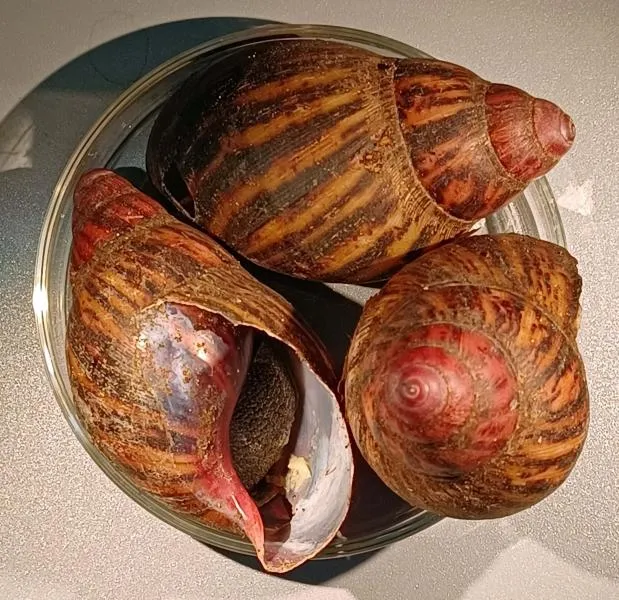Passenger packed escargot in carry-on luggage
HOUSTON – U.S. Customs and Border Protection agriculture specialists working at the George Bush Intercontinental Airport intercepted 15 live Giant Land Snails from a passenger’s luggage in early July.

were seized in Houston.
The passenger was traveling from Nigeria and initially only declared dried beef but later amended her declaration to include live snails.
During an examination of the passenger’s luggage, agriculture specialists found three plastic zip-closed bags containing the live snails with fresh leaves and about 0.25 pounds of beef. The snails were turned over to the U.S. Department of Agriculture who identified the snails as Giant Land Snails also known as Banana Rasp Snails.
This species of snail is a potentially serious threat as an invasive species that could negatively affect agriculture, natural ecosystems, human health or commerce.
“Our agriculture specialists remain vigilant in protecting the U.S. from foreign animal and plant disease that could threaten U.S. crop production and livestock industry or be transmitted to humans,” said Houston CBP Port Director Shawn Polley.
The snails are native to West Africa and affect fruit crops and plants. They are also a vector for Angiostrongylus cantonensis, also known as the rat lungworm, a parasitic nematode (worm) capable of causing rare forms of meningitis in humans. According to the Center for Disease Control and Prevention, more than 2,800 cases have been reported in the medical and scientific literature from approximately 30 countries. The 15 snails intercepted by the port were turned over to USDA for final disposition.
On a typical day in fiscal year 2020, CBP agriculture specialists discovered 250 pests at U.S. ports of entry and 3,091 materials for quarantine: plant, meat, animal by-product and soil. Passengers interested carrying food into the U.S. should declare agriculture items including fruits and vegetables, plants and cut flowers, meat and animal products and live animals.

